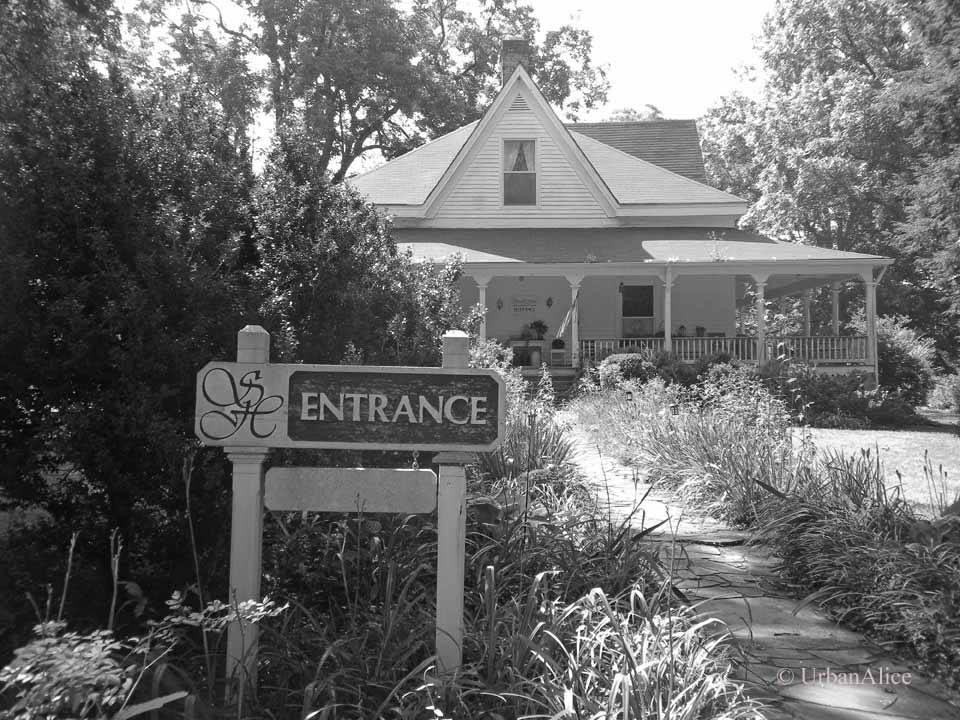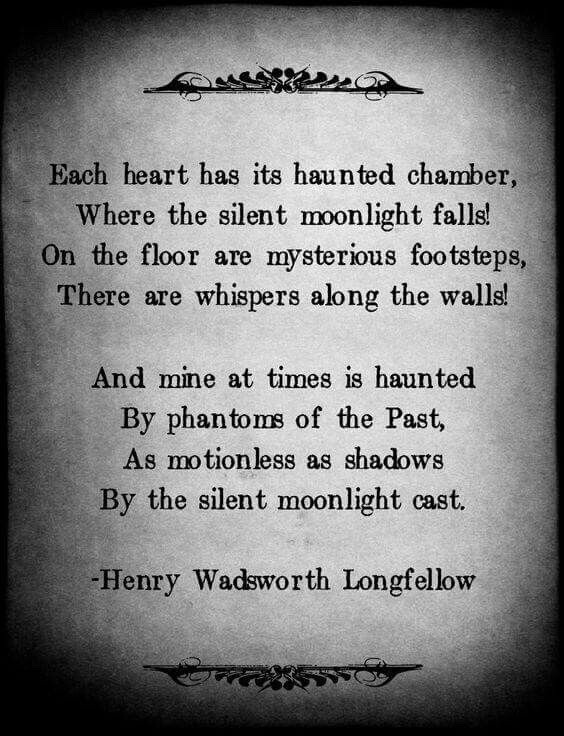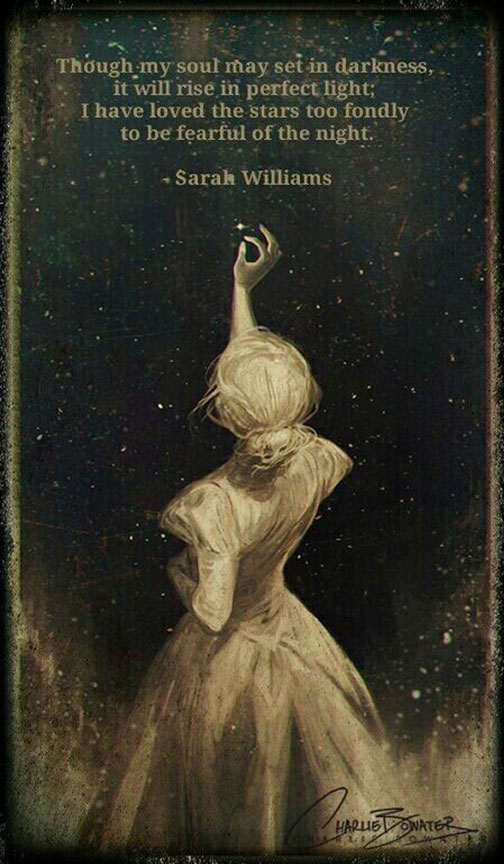I DWELL in a lonely house I knowThat vanished many a summer ago,And left no trace but the cellar walls,And a cellar in which the daylight falls,And the purple-stemmed wild raspberries grow. O’er ruined fences the grape-vines shieldThe woods come back to the mowing field;The orchard tree has grown one copseOf new wood and old where the woodpecker chops;The footpath down to the well is healed. I dwell with a strangely aching heartIn that vanished abode there far apartOn that disused and forgotten roadThat has no dust-bath now for the toad.Night comes; the black bats tumble and dart; The whippoorwill is coming to shoutAnd hush and cluck and flutter about:I hear him begin far enough awayFull many a time to say his sayBefore he arrives to say it out. It is under the small, dim, summer star.I know not who these mute folk areWho share the unlit place with me–Those…
Henry Wadsworth Longfellow was a renowned poet and educator of the 19th century. He achieved the highest level of literary success both in the United States and internationally. Longfellow, a Harvard professor, was the son of a Harvard graduate and attorney and the grandson on his maternal side of General Peleg Wadsworth (American Revolution). The most famous of his works are: The Landlord’s Tale – Paul RevereListen, my children, and you shall hearOf the midnight ride of Paul Revere… Evangeline: A Tale of Acadie A Psalm of Life The Song of Hiawatha Interestingly, Edgar Allan Poe was a big critic of his work in what became known as the “Little Longfellow War” in 1845. I’ll post a copy of an article detailing it from the Poe Museum soon. I started this post because I found this Longfellow poem and really liked it. Hope you enjoy reading it. Each heart has its haunted chamber, Where the silent moonlight falls!On the floor are mysterious footsteps, There are whispers along the walls! And mine at times is haunted By phantoms of the PastAs motionless as shadows By the silent moonlight cast. A form sits by the window, That is not seen by day,For as soon as the dawn approaches It vanishes away. It sits there in the moonlight Itself as pale and still,And points with its airy finger Across the window-sill. Without before the window, There stands a gloomy pine,Whose boughs wave upward and downward As wave these thoughts of mine. And underneath its branches Is the grave of a little child,Who died upon life’s threshold, And never wept nor smiled. What are ye, O pallid phantoms! That haunt my troubled brain?That vanish when day approaches, And at night return again? What are ye, O pallid phantoms! But the statues without breath,That stand on the bridge overarching The silent river of death? Henry Wadsworth…
The Japanese word describes piling up books to save for later … even if you’ll never actually read them. “Even when reading is impossible, the presence of books acquired produces such an ecstasy that the buying of more books than one can read is nothing less than the soul reaching towards infinity.” – A. Edward Newton, author, publisher, and collector of 10,000 books. Are you one of us? A master of tsundoku? Mine takes the shape of the aspirational stack by my bedside table – because I am going to read every night before bed, of course, and upon waking on the weekends. Hahaha. My tsundoku also takes shape in cookbooks … even though I rarely cook from recipes. And I think I most fervently practice tsundoku when I buy three or four novels to pile in my suitcase for a five-day vacation. Sometimes not even one sees its spine…
Auguries of Innocence by William Blake written perhaps in 1803 but not published until 1863. He died in 1827. Augur means to be a sign of especially good or bad things in the future. The Doors quoted him in their 1965 recording of “End of the Night”. To see a World in a Grain of SandAnd a Heaven in a Wild FlowerHold Infinity in the palm of your handAnd Eternity in an hourA Robin Red breast in a CagePuts all Heaven in a RageA Dove house filld with Doves & PigeonsShudders Hell thr’ all its regionsA dog starvd at his Masters GatePredicts the ruin of the State A Horse misusd upon the RoadCalls to Heaven for Human blood Each outcry of the hunted HareA fibre from the Brain does tear A Skylark wounded in the wing A Cherubim does cease to sing The Game Cock clipd & armd for fightDoes the Rising Sun affright Every Wolfs & Lions…
The Old Astronomer to His Pupil by Sarah Williams Reach me down my Tycho Brahe, I would know him when we meet,When I share my later science, sitting humbly at his feet;He may know the law of all things, yet be ignorant of howWe are working to completion, working on from then to now. Pray remember that I leave you all my theory complete,Lacking only certain data for your adding, as is meet,And remember men will scorn it, ’tis original and true,And the obloquy of newness may fall bitterly on you. But, my pupil, as my pupil you have learned the worth of scorn,You have laughed with me at pity, we have joyed to be forlorn,What for us are all distractions of men’s fellowship and smiles;What for us the Goddess Pleasure with her meretricious smiles! You may tell that German College that their honor comes too late,But they must not…
Review by Jennifer Graham A Reese Witherspoon x Hello Sunshine Book Club Pick I can’t even express how much I love this book! I didn’t want this story to end!– Reese Witherspoon I recently finished reading Where the Crawdads Sing by Delia Owens. It debuted in August 2018 and has sold more than 1.5 million copies. A #1 New York Times bestseller – it is an emotional story I will carry with me awhile. Here’s the description of the book from the inside of its cover: This post may contain affiliate links and we may earn compensation when you click on the links at no additional cost to you. For years, rumors of the “Marsh Girl” have haunted Barkley Cove, a quiet town on the North Carolina coast. So in late 1969, when handsome Chase Andrews is found dead, the locals immediately suspect Kya Clark, the so-called Marsh Girl. But…
Children need art and stories and poems and music as much as they need love and food and fresh air and play. If you don’t give a child food, the damage quickly becomes visible. If you don’t let a child have fresh air and play, the damage is also visible, but not so quickly. If you don’t give a child love, the damage might not be seen for some years, but it’s permanent. But if you don’t give a child art and stories and poems and music, the damage is not so easy to see. It’s there, though. Their bodies are healthy enough; they can run and jump and swim and eat hungrily and make lots of noise, as children have always done, but something is missing. It’s true that some people grow up never encountering art of any kind, and are perfectly happy and live good and valuable lives,…



